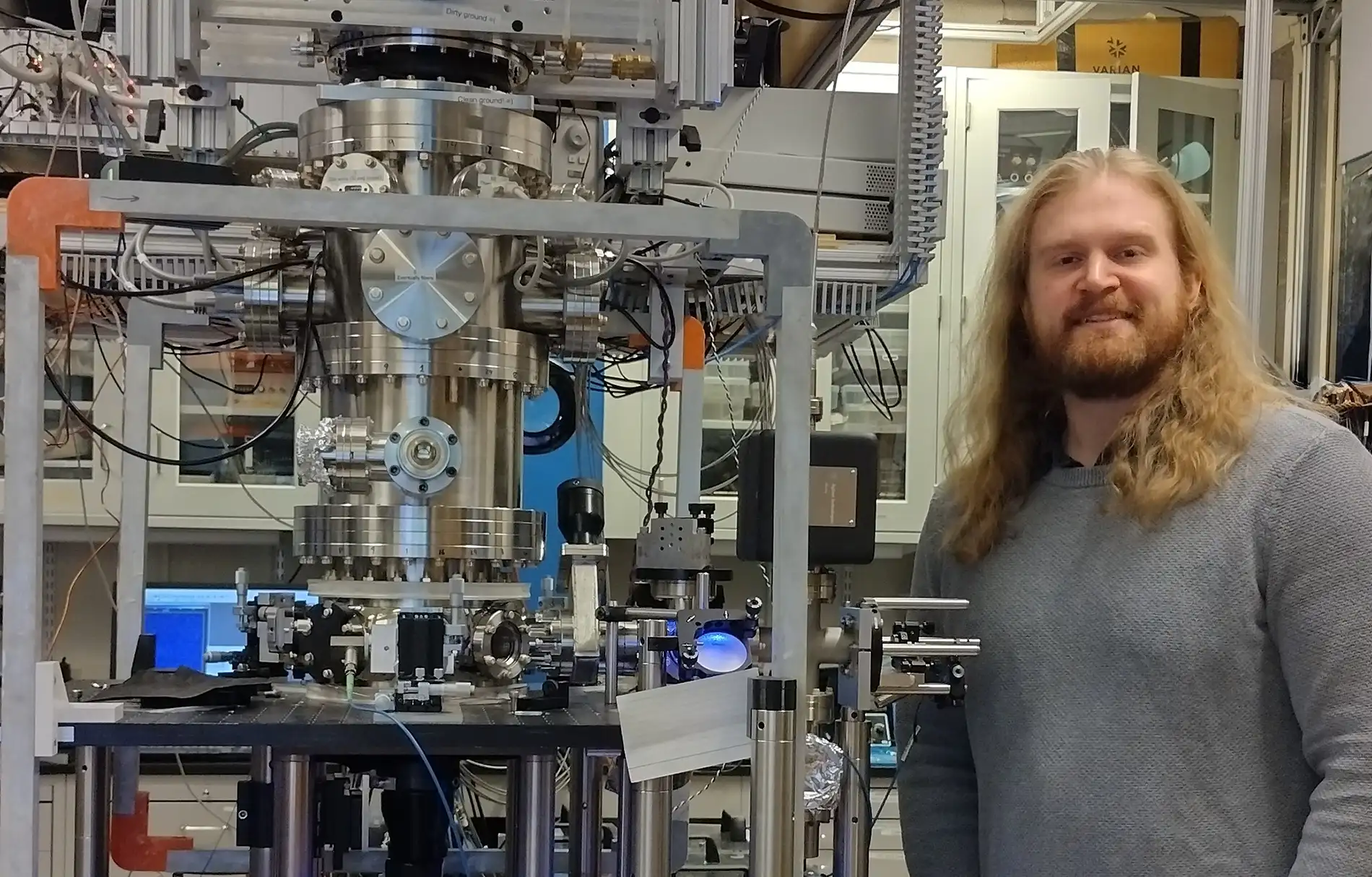Pioneering the Future of Quantum Information with Trapped Ions
Meet Ethan Clements
In the hands-on projects of his youth, Ethan Robert Clements, Ph.D., found his early fascination with science and engineering. Growing up in Bedford, Ohio, Clements often assisted his parents with home repairs, instilling in him an appreciation for creative problem-solving and hands-on work. This foundation set the stage for his future in STEM, leading him to pursue a career in physics.

As a recent participant in the Intelligence Community Postdoctoral Research Fellowship Program, Ethan Robert Clements focused on integrating photonics into trapped ion systems to enhance scalability and functionality for quantum information processing. (Photo Credit: Felix Knollmann)
Clements’s educational path began at Miami University in Ohio, where he earned both his bachelor’s and master’s degrees in physics. It was during his undergraduate research under the mentorship of Samir Bali, Ph.D., that his interest in physics solidified. Bali's lab, which focused on atomic, molecular, and optical (AMO) physics, provided Clements with invaluable experience in building and running experiments involving magneto-optical traps and optical lattices.
"Dr. Bali fostered an environment where young students could deeply engage in experimental physics, building lasers and working with complex optical systems," Clements recalls.
Driven by his passion for quantum information and sensing, Clements continued his studies at the University of Colorado Boulder, where he completed his doctoral degree. His thesis focused on the application of quantum information, quantum sensing, and metrology with trapped ions. This work laid the groundwork for his postdoctoral research.
In October 2022, Clements began his postdoctoral fellowship with the Intelligence Community (IC) Postdoctoral Research Fellowship Program, based at MIT.
The IC Postdoctoral Research Fellowship was established in 2000 to support unclassified basic research in areas of interest to the IC. Funded primarily by the Office of the Director of National Intelligence (ODNI), the Program annually supports several Postdoctoral Fellows (Postdocs) from U.S. accredited colleges, universities, and U.S. Government laboratories across the country.
Under the guidance of Professor Issac Chuang, Clements joined the Quanta group and collaborated closely with the trapped-ion team at MIT Lincoln Laboratory. His research aims to integrate photonics into trapped ion systems to enhance their scalability for quantum information processing.
Mentoring has been a rewarding aspect of my postdoc, offering fresh perspectives and insights that enhance our research."
"Our goal is to develop foundational operations in trapped ions using photonic circuits integrated directly into planar ion trap chips," Clements explains. This involves cooling trapped ions rapidly with integrated photonics and collecting light emitted from the ions into photonic circuits, crucial for building quantum networks. By integrating these technologies, Clements and his team hope to overcome challenges in scaling trapped ion architectures, paving the way for future quantum computers.
Clements’s day-to-day work at MIT involves tuning laser systems, loading ions, and collaborating with colleagues on experimental measurements. This routine has reinforced his appreciation for modular device design, which is central to his research on scalable quantum networks. "Modularity has been a key concept in our work, essential for building larger-scale quantum processors," he notes.
Clements’s research has significant implications for practical applications of quantum science, from quantum-enhanced sensors and metrological devices to quantum computers. These advancements could revolutionize fields such as material discovery, communication, and engineering.
In addition to his research, Clements has gained valuable experience mentoring undergraduate students, which has honed his leadership and organizational skills. "Mentoring has been a rewarding aspect of my postdoc, offering fresh perspectives and insights that enhance our research," he shares.
Clements has presented his work at various conferences, including a poster session at QuARC and a talk at the IC S&T Tech Week. He is also preparing manuscripts for submission to Optica Quantum and Physical Review Letters later this year. "These presentations and publications are essential for sharing our progress with the broader scientific community and advancing the field of quantum information," he states.
Looking ahead, Clements aspires to continue his research as a staff scientist at a national laboratory, focusing on atomic systems for quantum sensing and information applications. His experience at MIT, coupled with his passion for quantum science, positions him well to make significant contributions to the field. "My journey in physics has been driven by curiosity and the desire to solve complex problems, and I am excited to see where this path leads," Clements concludes.

